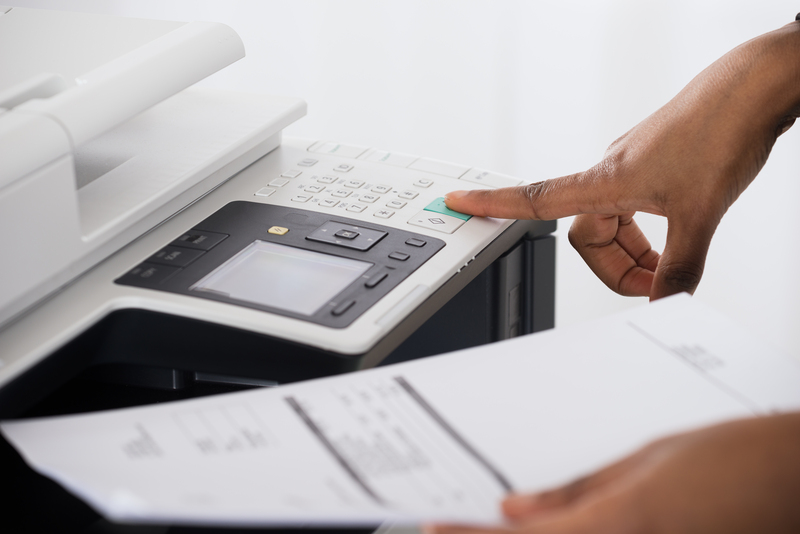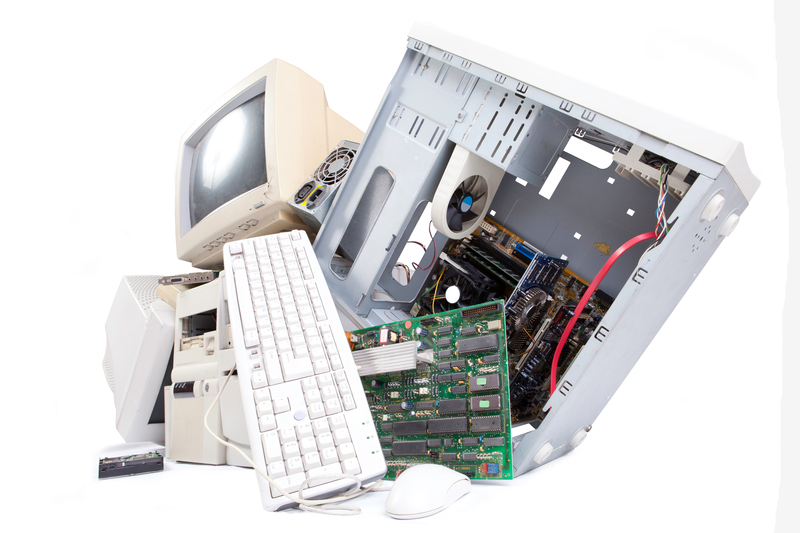Eco-Conscious Solutions for Storing and Recycling Cookware
Living sustainably isn't just about what you eat or how you commute--your kitchen practices play a pivotal role too. Eco-conscious solutions for storing and recycling cookware are catching the attention of environmentally responsible homeowners, chefs, and DIY enthusiasts. If you've recently upgraded your pots and pans or simply want to ensure your existing collection lasts longer, sustainable cookware management is a crucial step toward a greener lifestyle.
This comprehensive guide explores practical, planet-friendly methods for storing and recycling cookware, ensuring that your culinary journey remains as eco-friendly as possible. You'll discover creative storage options, responsible cookware disposal techniques, and recommendations for minimizing environmental impact in your kitchen.
Why Eco-Conscious Cookware Storage and Recycling Matters
Eco-conscious cookware storage and recycling are more than passing trends--they're vital components of a greener home. Old pots, pans, and utensils can easily pile up, ending in landfills where metal, nonstick coatings, and plastics pollute the environment and take decades or centuries to break down. Alternatively, storing cookware improperly can cause damage, leading to premature disposal and new purchases that place unnecessary strain on the planet.
By adopting sustainable cookware management, you:
- Reduce waste destined for landfill or incineration
- Increase the lifespan of your pots and pans
- Support the circular economy by recycling and repurposing materials
- Keep your cookware organized, accessible, and easily maintained

Sustainable Cookware Storage: Eco-Friendly Solutions for Organization
The first step in a greener kitchen is to store what you already own responsibly. The longer your cookware lasts, the less demand you'll create for new products and packaging. Here are eco-conscious storage solutions for cookware:
1. Vertical Storage Maximizes Space and Reduces Clutter
- Install wall-mounted racks: Use salvaged wood or recycled metal rods to hang pots and pans. This method frees up cabinet space and keeps your cookware ventilated, reducing the risk of rust and wear.
- Magnetic racks: Mount a strip for knives, lids, or small utensils. Choose brands committed to recycled materials or DIY your own from repurposed metal.
- Ceiling pot racks: Upcycle old ladders or scaffolding into overhead storage.
2. Drawer Organizers from Sustainable Materials
Commercial organizers are often plastic, but you can opt for:
- Bamboo dividers: Bamboo is fast-growing, biodegradable, and renewable.
- Reclaimed wood inserts cut to fit your drawers.
3. Creative Repurposing for Storage Solutions
- Repurpose crates or baskets from previous deliveries for storing lids, baking sheets, or small pans.
- Old hooks, rails, and rods can be sourced from salvage yards or secondhand shops.
4. Proper Preparation for Long-Term Storage
- Clean and dry cookware thoroughly before storing to prevent mold, rust, and odors.
- Stack pans with liners made from old towels or fabric scraps to avoid scratches.
- Label storage areas with upcycled tags for easy access and rotation.
5. Sustainable Container Choices
If you must use bins, choose:
- Recycled plastic containers--look for products with high post-consumer content.
- Natural fiber baskets (e.g., seagrass or jute).
Never buy new storage items unless absolutely necessary--check local buy-nothing groups, charity shops, or online marketplaces first.
When It's Time: Eco-Conscious Recycling of Old Cookware
No matter how well you care for your cookware, everything reaches the end of its useful life eventually. Disposing of cookware responsibly ensures metals, composites, and coatings don't contaminate the ecosystem.
Understanding Cookware Materials and Their Recyclability
- Stainless steel: Highly recyclable; most recyclers accept it if it's not attached to plastic or wood.
- Cast iron: 100% recyclable and can be melted down for reuse.
- Aluminum: Also widely accepted at recycling centers--you may need to remove plastic handles.
- Nonstick cookware: Challenging to recycle due to synthetic coatings (such as Teflon or ceramic); special facilities or take-back programs may be required.
- Copper: Recyclable but fetches a higher value--some scrap dealers will take it.
- Glass lids: Not always accepted with regular glass recycling--contact your local waste facility for guidance.
Preparation for Recycling Cookware
- Remove non-metal parts: Unscrew or detach plastic, silicon, or wood handles and knobs.
- Clean thoroughly--food residue can contaminate recycling batches.
- Assess if an item's in good enough condition for donation or repurposing instead of recycling.
Locating Cookware Recycling Facilities
- Contact your local scrap metal recycler--most accept metal pots, pans, and bakeware.
- Check city-run waste management programs for periodic bulk waste or metal drop-off days.
- Use online directories like Earth911 or RecycleNow for specific facility locations.
- Brand take-back schemes: Some cookware manufacturers offer mail-back or retail return programs for nonstick or specialty pans.
Responsible Recycling of Nonstick and Specialty Cookware
Because nonstick coatings like Teflon complicate recycling, traditional curbside programs may not accept these items. Here's how you can be proactive:
- Check with the manufacturer for take-back or recycling options.
- See if a local hazardous waste event will accept nonstick pans.
- If possible, remove the coating (sandblasting or scraping) to recycle the underlying metal, but be sure to follow safety precautions.
Donating, Upcycling, and Repurposing Old Cookware
Not all cookware needs to hit the recycling stream. If yours is still usable, consider the following eco-conscious alternatives:
- Donate: Shelters, food banks, church kitchens, and charity shops often accept gently used cookware.
- Upcycle: Turn pots, pans, and lids into planters, wall art, birdbaths, or organizing containers. Let your creativity--and Pinterest--inspire you!
- Sell or swap through local community groups or online marketplaces to keep materials circulating within your community.
Reducing Your Environmental Impact: Proactive Tips
Eco-conscious cookware storage and responsible recycling are steps in a larger sustainable lifestyle. To further lessen your impact, consider these tips:
1. Buy Long-Lasting, Repairable Cookware
- Choose reputable brands that offer warranties and repair services.
- Opt for durable materials: Cast iron and stainless steel have decades-long lifespans.
2. Avoid Unnecessary Upgrades
- Replace only when needed; don't fall for trends or fast fashion in the kitchen.
3. Support Brands with Eco-Friendly Take-Back Programs
- Many responsible manufacturers are launching recycling initiatives for old cookware--be sure to ask about these options when purchasing.
4. Minimize Packaging Waste
- Buy in-store or request minimal and recyclable packaging if ordering online.

Frequently Asked Questions About Sustainable Cookware Recycling & Storage
Can I put old pots and pans in curbside recycling?
Rarely. Most curbside recycling programs do not process metal cookware due to size, mixed materials, or coatings. Always check with your local facility or use dedicated scrap metal recyclers.
Is it safe to use old nonstick pans?
If your nonstick cookware is scratched, chipped, or flaking, it's best to recycle it responsibly and avoid using it--damaged coatings can leach chemicals under high heat.
How do I store cookware to make it last longer?
Stack cookware with fabric liners to prevent scratches. Hang items to improve air circulation and avoid moisture--which causes rust. Store in a dry environment and clean thoroughly before putting away.
What is the best way to recycle cookware with mixed materials?
Separate all non-metal parts before recycling. For pots and pans that combine materials, ask your local facility about accepted items--sometimes plastic or wood handles can be recycled separately.
Can cookware be upcycled instead of recycled?
- Yes! Cookware makes excellent garden planters, art canvases, storage bins, or bird feeders. Upcycling is perfect for extending the useful life of retired kitchen items.
Conclusion: Eco-Conscious Cookware Management is Everyone's Responsibility
As we strive for a greener home and kitchen, our approach to managing pots, pans, and utensils should reflect our commitment to the environment. Eco-conscious solutions for storing and recycling cookware ensure that every step of your culinary adventure supports the planet. From creative storage hacks to responsible recycling routes, small daily choices truly add up.
Whether you're looking to renovate your kitchen, upgrade your collection, or simply reduce waste, consider integrating these storage and recycling practices into your routine. The kitchen is the heart of the home--make it a model for sustainability by applying the tips above and sharing your eco-friendly journey with others.
Together, we can craft a cleaner, greener future, one cookware item at a time.